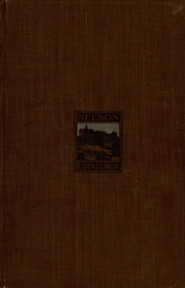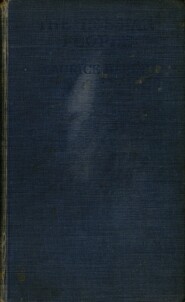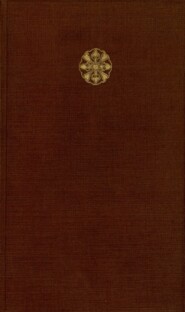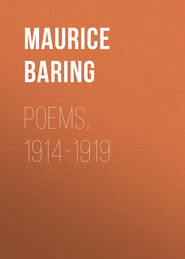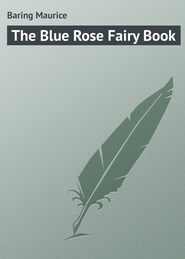По всем вопросам обращайтесь на: info@litportal.ru
(©) 2003-2024.
✖
Overlooked
Настройки чтения
Размер шрифта
Высота строк
Поля
"That sounds like a Polish name."
I said he was a Russian.
"You knew him, too?"
"Just a little."
"It is an interesting story," she said, "but I think Rudd makes all the characters more complicated than they probably were. Does Mr. Rudd know Russia?"
I said I believed not at all.
"I thought not," she said.
I said that Kranitski seemed to me a far simpler character than Rudd's Anikin.
"Did Dr. Sabran know all those people?" she asked.
I said Dr. Sabran had not been here while it was going on.
"It would be very annoying for that poor girl to find herself in a book," she said, "if he published it."
I said that Rudd would probably never publish it – although he would probably deny that he had made portraits, and to some extent with reason, as his Kathleen Farrel was quite unlike Miss Brandon.
"Oh, her name was Miss Brandon," Countess Yaskov said, pensively. "If she comes here this year you must introduce me to her. I think I should like her."
"Everyone said she was beautiful," I said.
"One sees that from the novel. I suppose James Rudd invented a character which he thought suited her face."
I said that that was exactly what had happened. Rudd had started with a theory about Miss Brandon, that she was such and such person, and he distorted the facts till they fitted with his theory. At least, that was what I imagined to have been the case.
I asked Countess Yaskov what she thought of the psychology of Rudd's Russian. I said she ought to be a good judge. She laughed and said:
"Yes, I ought to be a good judge. I think he is rather severe on the Slavs, don't you? He makes that poor Anikin so very complicated, and so very sly and fickle as well."
I said I thought the excuses which Rudd credited the Russian with making to himself for breaking off the engagement with the heroine of the book, were absurd.
"Do you think the Russian said those things or that the novelist invented them?" she asked.
I said I thought he had said what he was reported to have said.
"If he said that, he was not lying," she said.
I agreed, and I also thought he had said all that; but that Rudd's explanation of his words was wrong. If that was true he must have broken off his engagement.
"There is nothing very improbable in that, is there?" she asked.
"Nothing," I said. And yet I thought that Kranitski had finished with whatever there was in the past that might have been an obstacle to his present.
"Did he tell you that?" she asked.
As she said that, although the tone of her voice was quite natural, almost too natural, there was a peculiar intonation in the way she said the word "he," in that word and that word only, which gave me the curious sensation of a veil being lifted. I felt I was looking through a hole in the clouds. I felt certain that Countess Yaskov had known Kranitski.
"He never told me one word that had anything to do with what Rudd tells in his novel," I said.
I felt that my voice was no longer natural as I said this. There was a strain in it. There was a pause. I do not know why I now felt certain that Countess Yaskov possessed the key of the mystery. I suddenly felt she was the woman whom Kranitski had known and loved for seven years, so much so, that I could say nothing further. I also felt that she knew that I knew. We talked of other things. In the course of the conversation I asked her if she thought of staying a long time at Haréville.
"It depends on my husband," she said. "I don't know yet whether he is coming here to fetch me, or whether he wants me to meet him. At any rate I shall go back to Russia for my boys' holidays. I have two sons at school."
The next time I saw Sabran I asked him what he had meant by telling me that Countess Yaskov was divorced from her husband. I told him what she had said to me about her husband and her sons. He did not seem greatly surprised; but he stuck to his point that she was divorced.
The next time I saw Countess Yaskov, she told me she had told a friend of hers about Rudd's story. Her friend had instantly recognized the character of Anikin.
"My friend tells me," she said, "that the novelist is quite false as far as that character is concerned, false and not fair. She said what happened was this: The man whom Rudd describes as Anikin had been in love for many years with a married woman. She was in love with him, too, but she did not want to divorce her husband, for various reasons. So they separated. They separated after having known each other a long time. Then the woman changed her mind and she settled she would divorce, and she let Anikin know. She wrote to him and said she was willing, at last, to divorce. My friend says it was complicated by other things as well. She did not tell me the whole story, but the man went to Africa and the woman did not divorce. What Anikin was supposed to have said to the novelist was true. He told the truth, and the novelist thought he was saying false things. That is what you thought, too. But all has been for the best in the end, because do you know what there is in to-day's Daily Mail?" she asked.
I said no one had read me the newspaper as yet.
"The marriage is announced," she said, "of Miss Brandon to a man called Sir Somebody Canning."
"That," said I, "is the Englishman in the book."
"So Mr. Rudd was wrong altogether," she said, and she laughed.
That is all that passed between us on this occasion, and I think this is a literal and complete transcription of our conversation. Countess Yaskov told me her story, the narrative of her friend, with perfect naturalness and with a quiet ease. She talked as if she were relating facts that had no particular personal interest for her. There was not a tremor in her voice, not an intonation, either of satisfaction or pain, nothing but the quiet impersonal interest one feels for people in a book. She might have been discussing Anna Karenina, or a character of Stendhal. She was neutral and impartial, an interested but completely disinterested spectator.
The tone of her voice was subtly different from what it had been the other day towards the end of our conversation. For during that conversation, admirably natural as she had been, and although her voice only betrayed her in the intonation of one syllable. I feel now, looking back on it, that she was not sure of herself, that she knew she was walking the whole time on the edge of a precipice.
This time I felt she was quite sure of herself; sure of her part. She was word-perfect and serenely confident.
Of course, what she said startled me. First of all, the soi-disant explanation of her friend. Had she told a friend about the story? I thought not. Indeed, I feel now quite certain that the friend was an invention, quite certain that she knew I had recognized her as the missing factor in the drama, and that she had wished me not to have a false impression of Kranitski. But at the time, while she was talking she seemed so natural that for the moment I believed, or almost believed, in the friend. But when she told me of Miss Brandon's marriage she furnished me with the explanation of her perfect acting, if it was acting. I thought it was the possession of this piece of news which enabled her to tell me that story so calmly and so dispassionately.
Of course I may still be quite wrong. I may be seeing too much. Perhaps she had nothing to do with Kranitski, and perhaps she did tell a friend. She has friends here.
Nevertheless I felt certain during our first conversation, at the moment I felt I was looking through the clouds, that she had been aware of it; aware that I had not been able to go on talking of the story as naturally as I had done before. Her explanation, what her friend was supposed to have said, fitted in exactly with my suppositions, and with what I already knew. Sabran had been right. The clue to the whole thing was the letter. The letter that Kranitski had received when he was talking to me and which had made so sudden a change in him was the letter from her, from Countess Yaskov, saying she was ready to divorce and to marry him. He received this letter just after he was engaged to be married to Miss Brandon. It put him in a terrible situation. This situation fitted exactly with what Rudd made him say to the novelist in the story: his obligation to the past conflicted with his inclination, namely, his desire to marry Miss Brandon.
Of course I might be quite wrong. It might all be my imagination. The next day I got a belated letter, from Miss Brandon, forwarded from Cadenabbia, telling me of her engagement. She said they were to be married at once, quite quietly. She knew it was no use asking me, but if I had been in London, etc. She made no other comments.
That evening I dined with Sabran. I told him the news about Miss Brandon, and I told him what Countess Yaskov had told me her friend had told her about the story.
"Half the problem is solved," he said. "The story of Countess Yaskov's friend explains the words which Rudd lends to the Russian. His inclination, which was to marry Miss Brandon, coincides with the religious duty of a croyant, which is not to marry a divorcée, and not to put himself once more outside the pale of the Church, but it clashes with his obligation, which is to be faithful to his friend of seven years. His inclination coincides with his duty, but his duty is in conflict with his obligation. What does he do? He goes away. Does he explain? Who knows? He was, indeed, in a fichu situation. And now Miss Brandon marries the young man. Either she had loved him all the time, or else, feeling her romance was over, she was marrying to be married. In any case, her novel, so far from being ended, is only just beginning. And the Russian? Was it a real amour or a coup-de-tête? Time will show. For himself he thought it was only a coup-de-tête: he will go back to his first love, but she will never divorce."
I asked him again whether he was sure that Countess Yaskov was divorced from her husband. He was quite positive. He knew it de source certaine. She had been divorced years ago, and she lived at Rome. I was puzzled. In that case, why did she try and deceive me, and at the same time if she wanted to deceive me why did she tell me so much? Why did she give me the key of the problem? I said nothing of that to Sabran. I saw it was no use.
A few days later, Countess Yaskov left Haréville. She told me she was going to join her husband. I did not remain long at Haréville after that. A few days before I left, Princess Kouragine arrived. I told her about Miss Brandon's marriage. She said she was not surprised. Canning deserved to marry her for having waited so long. "But," she said, "he will never light that lamp."
I asked her if she was sorry for Kranitski. She said:
"Very, but it could not be otherwise."
I said he was a Russian.
"You knew him, too?"
"Just a little."
"It is an interesting story," she said, "but I think Rudd makes all the characters more complicated than they probably were. Does Mr. Rudd know Russia?"
I said I believed not at all.
"I thought not," she said.
I said that Kranitski seemed to me a far simpler character than Rudd's Anikin.
"Did Dr. Sabran know all those people?" she asked.
I said Dr. Sabran had not been here while it was going on.
"It would be very annoying for that poor girl to find herself in a book," she said, "if he published it."
I said that Rudd would probably never publish it – although he would probably deny that he had made portraits, and to some extent with reason, as his Kathleen Farrel was quite unlike Miss Brandon.
"Oh, her name was Miss Brandon," Countess Yaskov said, pensively. "If she comes here this year you must introduce me to her. I think I should like her."
"Everyone said she was beautiful," I said.
"One sees that from the novel. I suppose James Rudd invented a character which he thought suited her face."
I said that that was exactly what had happened. Rudd had started with a theory about Miss Brandon, that she was such and such person, and he distorted the facts till they fitted with his theory. At least, that was what I imagined to have been the case.
I asked Countess Yaskov what she thought of the psychology of Rudd's Russian. I said she ought to be a good judge. She laughed and said:
"Yes, I ought to be a good judge. I think he is rather severe on the Slavs, don't you? He makes that poor Anikin so very complicated, and so very sly and fickle as well."
I said I thought the excuses which Rudd credited the Russian with making to himself for breaking off the engagement with the heroine of the book, were absurd.
"Do you think the Russian said those things or that the novelist invented them?" she asked.
I said I thought he had said what he was reported to have said.
"If he said that, he was not lying," she said.
I agreed, and I also thought he had said all that; but that Rudd's explanation of his words was wrong. If that was true he must have broken off his engagement.
"There is nothing very improbable in that, is there?" she asked.
"Nothing," I said. And yet I thought that Kranitski had finished with whatever there was in the past that might have been an obstacle to his present.
"Did he tell you that?" she asked.
As she said that, although the tone of her voice was quite natural, almost too natural, there was a peculiar intonation in the way she said the word "he," in that word and that word only, which gave me the curious sensation of a veil being lifted. I felt I was looking through a hole in the clouds. I felt certain that Countess Yaskov had known Kranitski.
"He never told me one word that had anything to do with what Rudd tells in his novel," I said.
I felt that my voice was no longer natural as I said this. There was a strain in it. There was a pause. I do not know why I now felt certain that Countess Yaskov possessed the key of the mystery. I suddenly felt she was the woman whom Kranitski had known and loved for seven years, so much so, that I could say nothing further. I also felt that she knew that I knew. We talked of other things. In the course of the conversation I asked her if she thought of staying a long time at Haréville.
"It depends on my husband," she said. "I don't know yet whether he is coming here to fetch me, or whether he wants me to meet him. At any rate I shall go back to Russia for my boys' holidays. I have two sons at school."
The next time I saw Sabran I asked him what he had meant by telling me that Countess Yaskov was divorced from her husband. I told him what she had said to me about her husband and her sons. He did not seem greatly surprised; but he stuck to his point that she was divorced.
The next time I saw Countess Yaskov, she told me she had told a friend of hers about Rudd's story. Her friend had instantly recognized the character of Anikin.
"My friend tells me," she said, "that the novelist is quite false as far as that character is concerned, false and not fair. She said what happened was this: The man whom Rudd describes as Anikin had been in love for many years with a married woman. She was in love with him, too, but she did not want to divorce her husband, for various reasons. So they separated. They separated after having known each other a long time. Then the woman changed her mind and she settled she would divorce, and she let Anikin know. She wrote to him and said she was willing, at last, to divorce. My friend says it was complicated by other things as well. She did not tell me the whole story, but the man went to Africa and the woman did not divorce. What Anikin was supposed to have said to the novelist was true. He told the truth, and the novelist thought he was saying false things. That is what you thought, too. But all has been for the best in the end, because do you know what there is in to-day's Daily Mail?" she asked.
I said no one had read me the newspaper as yet.
"The marriage is announced," she said, "of Miss Brandon to a man called Sir Somebody Canning."
"That," said I, "is the Englishman in the book."
"So Mr. Rudd was wrong altogether," she said, and she laughed.
That is all that passed between us on this occasion, and I think this is a literal and complete transcription of our conversation. Countess Yaskov told me her story, the narrative of her friend, with perfect naturalness and with a quiet ease. She talked as if she were relating facts that had no particular personal interest for her. There was not a tremor in her voice, not an intonation, either of satisfaction or pain, nothing but the quiet impersonal interest one feels for people in a book. She might have been discussing Anna Karenina, or a character of Stendhal. She was neutral and impartial, an interested but completely disinterested spectator.
The tone of her voice was subtly different from what it had been the other day towards the end of our conversation. For during that conversation, admirably natural as she had been, and although her voice only betrayed her in the intonation of one syllable. I feel now, looking back on it, that she was not sure of herself, that she knew she was walking the whole time on the edge of a precipice.
This time I felt she was quite sure of herself; sure of her part. She was word-perfect and serenely confident.
Of course, what she said startled me. First of all, the soi-disant explanation of her friend. Had she told a friend about the story? I thought not. Indeed, I feel now quite certain that the friend was an invention, quite certain that she knew I had recognized her as the missing factor in the drama, and that she had wished me not to have a false impression of Kranitski. But at the time, while she was talking she seemed so natural that for the moment I believed, or almost believed, in the friend. But when she told me of Miss Brandon's marriage she furnished me with the explanation of her perfect acting, if it was acting. I thought it was the possession of this piece of news which enabled her to tell me that story so calmly and so dispassionately.
Of course I may still be quite wrong. I may be seeing too much. Perhaps she had nothing to do with Kranitski, and perhaps she did tell a friend. She has friends here.
Nevertheless I felt certain during our first conversation, at the moment I felt I was looking through the clouds, that she had been aware of it; aware that I had not been able to go on talking of the story as naturally as I had done before. Her explanation, what her friend was supposed to have said, fitted in exactly with my suppositions, and with what I already knew. Sabran had been right. The clue to the whole thing was the letter. The letter that Kranitski had received when he was talking to me and which had made so sudden a change in him was the letter from her, from Countess Yaskov, saying she was ready to divorce and to marry him. He received this letter just after he was engaged to be married to Miss Brandon. It put him in a terrible situation. This situation fitted exactly with what Rudd made him say to the novelist in the story: his obligation to the past conflicted with his inclination, namely, his desire to marry Miss Brandon.
Of course I might be quite wrong. It might all be my imagination. The next day I got a belated letter, from Miss Brandon, forwarded from Cadenabbia, telling me of her engagement. She said they were to be married at once, quite quietly. She knew it was no use asking me, but if I had been in London, etc. She made no other comments.
That evening I dined with Sabran. I told him the news about Miss Brandon, and I told him what Countess Yaskov had told me her friend had told her about the story.
"Half the problem is solved," he said. "The story of Countess Yaskov's friend explains the words which Rudd lends to the Russian. His inclination, which was to marry Miss Brandon, coincides with the religious duty of a croyant, which is not to marry a divorcée, and not to put himself once more outside the pale of the Church, but it clashes with his obligation, which is to be faithful to his friend of seven years. His inclination coincides with his duty, but his duty is in conflict with his obligation. What does he do? He goes away. Does he explain? Who knows? He was, indeed, in a fichu situation. And now Miss Brandon marries the young man. Either she had loved him all the time, or else, feeling her romance was over, she was marrying to be married. In any case, her novel, so far from being ended, is only just beginning. And the Russian? Was it a real amour or a coup-de-tête? Time will show. For himself he thought it was only a coup-de-tête: he will go back to his first love, but she will never divorce."
I asked him again whether he was sure that Countess Yaskov was divorced from her husband. He was quite positive. He knew it de source certaine. She had been divorced years ago, and she lived at Rome. I was puzzled. In that case, why did she try and deceive me, and at the same time if she wanted to deceive me why did she tell me so much? Why did she give me the key of the problem? I said nothing of that to Sabran. I saw it was no use.
A few days later, Countess Yaskov left Haréville. She told me she was going to join her husband. I did not remain long at Haréville after that. A few days before I left, Princess Kouragine arrived. I told her about Miss Brandon's marriage. She said she was not surprised. Canning deserved to marry her for having waited so long. "But," she said, "he will never light that lamp."
I asked her if she was sorry for Kranitski. She said:
"Very, but it could not be otherwise."






